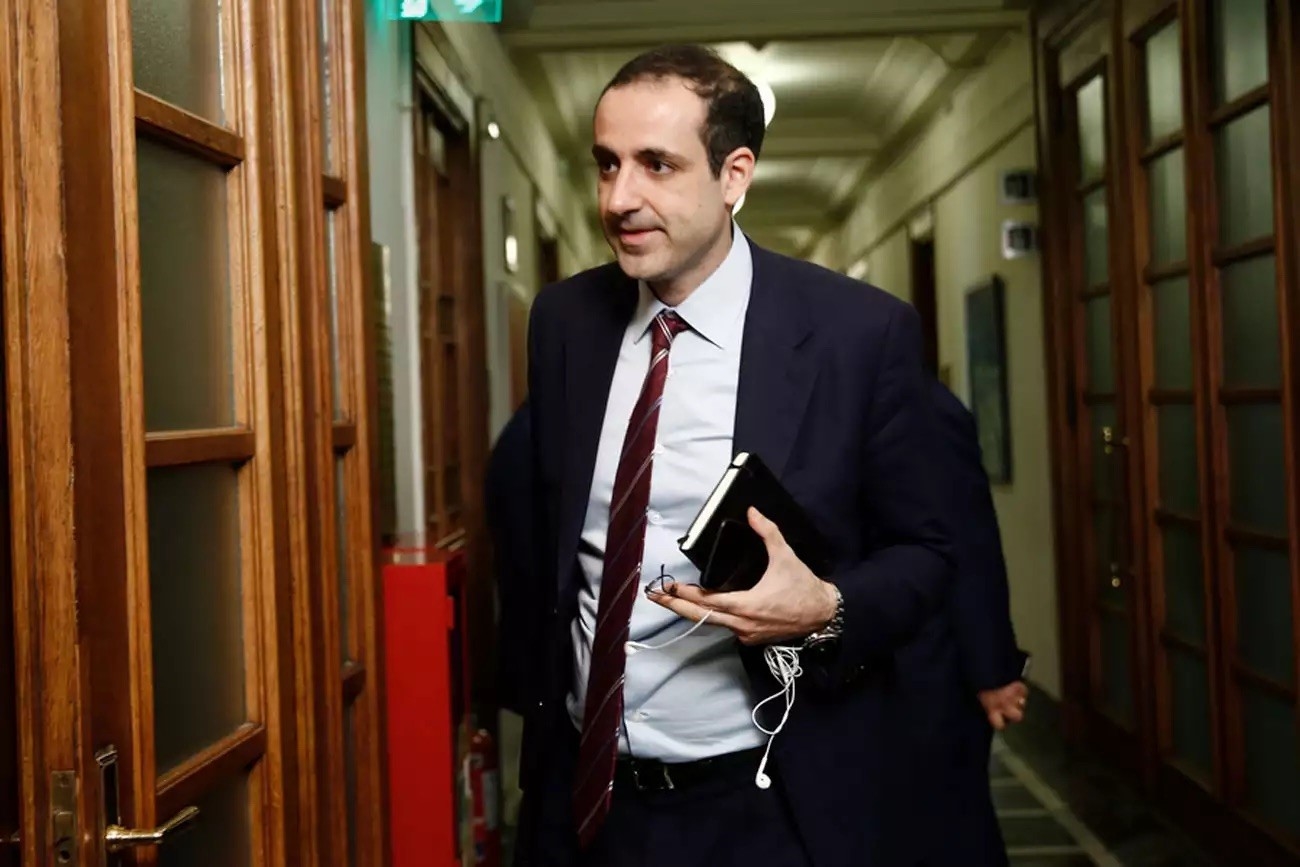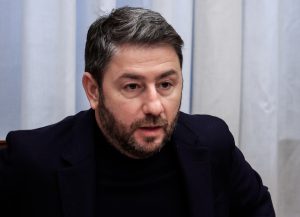A very high-profile lawsuit filed by Grigoris Dimitriadis, the former director of the prime minister’s office, against an Athens daily, the Reporters United group and an individual journalist over coverage of a notorious phone tapping case in Greece was heard in a packed Athens first instance court on Thursday.
The issue of Dimitriadis’ multiple lawsuits has generated heightened attention in the country and even reached the EU level, given concerns over the use of so-called SLAPP lawsuits to dissuade media scrutiny and what critics call slipping rule of law standards.
In his testimony, constitutional law professor Nikos Alivizatos, who also represents PASOK president Nikos Androulakis, one of the main targets of the Greek intelligence service’s eavesdropping, told the justices on the bench that “…”I can assure you under my absolute professional conscience that the articles are written in an extremely careful manner. If I wanted me to show my students an article that is not libelous, I would show them this one. Journalists are referring to facts that the other side has not denied. Possibly, the only criticism, and this within 10 quotation marks, is the headline,” he said.
He was subsequently queried by attorneys for the defendants, the Athens daily “Efimerida ton Syntakton” and journalist Thanasis Koukakis, over the prospect that the specific lawsuit aims to scare off media and reporters from investigating the specific case and the plaintiff’s alleged role.
In response, Alivizatos said the Athens first instance court itself can create a Greek case law precedent vis-à-vis SLAPP lawsuits.
He was also asked questions over the purchase, by Dimitriadis while he served as the premier’s chief of staff, of a company for 1,000 euros from a man identified as a driver for a businessman linked to the marketing of a notorious spyware program, a company the former subsequently sold for 166,000 euros.
Conversely, attorneys for Dimitriadis, himself a lawyer, questioned another lawyer, Nikoletta Mylona, who is employed in the latter’s law office. Mylona claimed there was no conflict of interest stemming from Dimitriadis’ involvement with the company and its subsequent sale, while calling the specific media reports slanderous.








